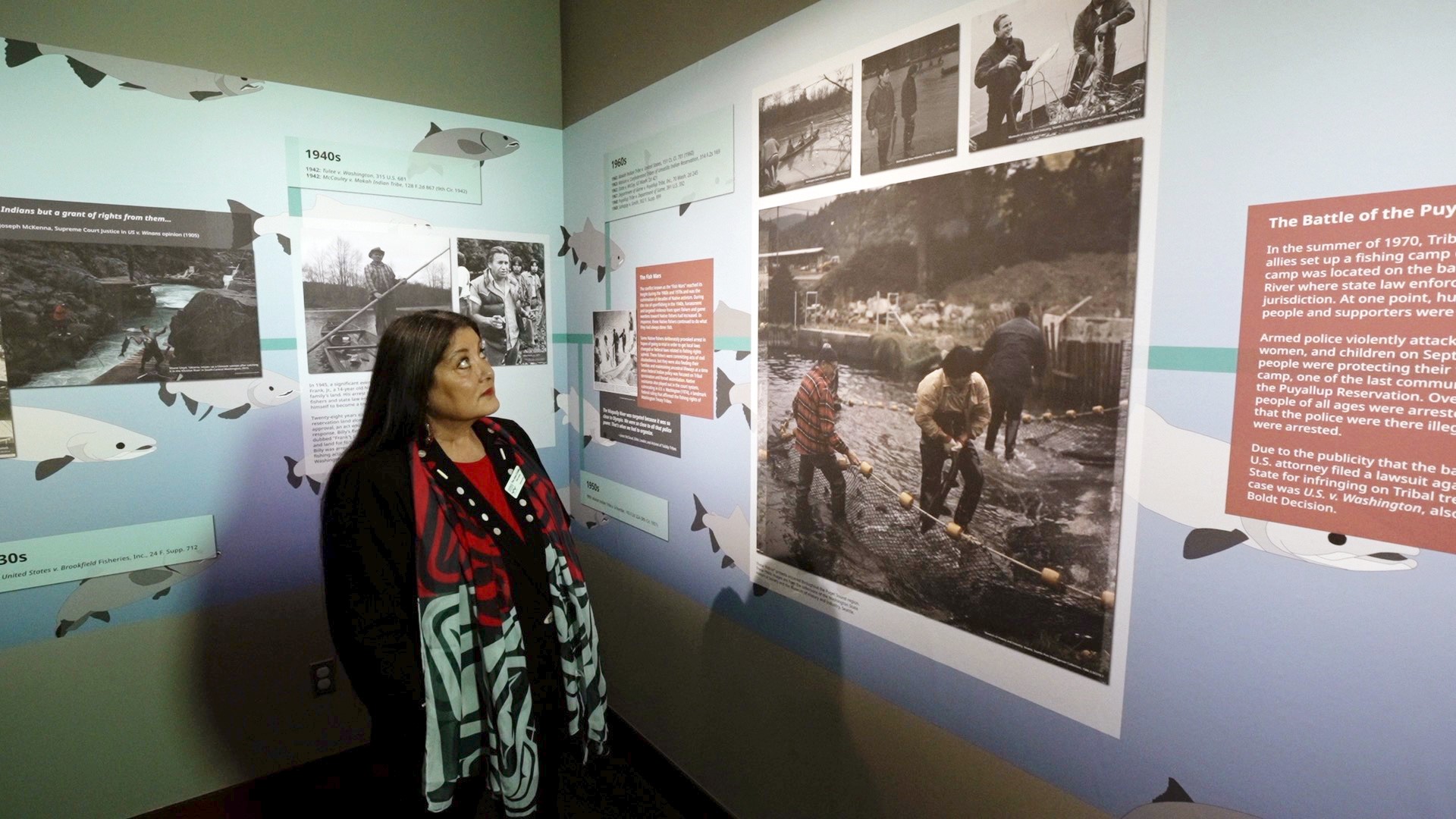TACOMA, Wash. — "We have our stories that tell us that we came from the salmon. That salmon are not just food. But they are people and our job is to protect them," said Pam James who is walking us through the newly-opened Washington State History Museum exhibit The Boldt Decision at 50.
The museum's tribal liaison, who has Colville and Sinixt heritage, remembers stories of family members getting arrested and shot at in the 1970's during what was known as The Fishing Wars. Some battles got violent. Movie star Marlon Brando showed up in support of the tribes in the 1960's.
"It was a huge story," James said.
The fight was over who had the rights to the salmon and steelhead, Native Americans or the growing number of non-native commercial and recreational fishermen.
It wouldn't be decided on water, but in a Tacoma courthouse by Judge George Boldt.
The tribes argued their rights to take fish from their "usual and accustomed waters" had been secured by the 1854 Medicine Creek Treaty, signed before Washington became a state.
"Well, as we all know, treaties can be broken," James said. "That was part of the fight as well."
Judge Boldt ruled the 120-year-old treaty was still in effect, that "Indian fishing is a right. Non-Indian fishing is a privilege." He awarded the treaty tribes half of the salmon catch in the state. More importantly, the decision upheld tribal sovereignty. The treaty was an agreement between two nations.
"We are all treaty people, native or non-native," said Gwen Whiting, Head Curator of the museum. "This treaty, the Medicine Creek treaty, governs the land on which all of us are standing right now."
The decision was not well received by commercial fishermen who complained their livelihoods were at risk. Boldt was even burned in effigy.
Today it is the tribes leading the way to saving the salmon. The goal, James said, is to plan ahead for the next seven generations.
"So our hope is that our children or grandchildren and great grandchildren will have the opportunity to hunt fish and gather medicines just as we have always done," she said.
The Boldt Decision at 50 exhibit will be at the Washington State History Museum through mid-September.
KING 5's Evening celebrates the Northwest. Contact us: Facebook, Twitter, Instagram, Email.

